
Upolu Island: The Heartbeat of Samoa
Upolu Island, the most populous island in Samoa, offers a rich tapestry of natural beauty, cultural heritage, and warm hospitality. This tropical paradise is home to Apia, the capital city, where you can get a taste of Samoan life with its bustling markets, historical sites, and vibrant nightlife. For nature lovers, Upolu is a dream destination. The island boasts stunning beaches with crystal-clear waters, lush rainforests, and cascading waterfalls. Don't miss the To-Sua Ocean Trench, a unique swimming hole surrounded by lush greenery, or the breathtaking views from the top of Mount Vaea. Cultural enthusiasts will appreciate the rich traditions and customs of the Samoan people. Visit the Robert Louis Stevenson Museum, dedicated to the famous author who spent his final years on the island, and explore traditional Samoan villages to witness age-old practices like tattooing and fire dancing. Upolu is also a haven for adventure seekers. Whether you're snorkeling in the coral reefs, hiking through the tropical forests, or surfing the world-class waves, there's no shortage of activities to keep your adrenaline pumping.
Local tips in Upolu Island
- Visit early in the morning to avoid crowds at popular spots like the To-Sua Ocean Trench.
- Respect local customs and dress modestly when visiting villages.
- Bring cash, as many local businesses do not accept credit cards.
- Rent a car for the best way to explore the island at your own pace.
- Try the local cuisine, especially dishes like palusami and oka.
Upolu Island: The Heartbeat of Samoa
Upolu Island, the most populous island in Samoa, offers a rich tapestry of natural beauty, cultural heritage, and warm hospitality. This tropical paradise is home to Apia, the capital city, where you can get a taste of Samoan life with its bustling markets, historical sites, and vibrant nightlife. For nature lovers, Upolu is a dream destination. The island boasts stunning beaches with crystal-clear waters, lush rainforests, and cascading waterfalls. Don't miss the To-Sua Ocean Trench, a unique swimming hole surrounded by lush greenery, or the breathtaking views from the top of Mount Vaea. Cultural enthusiasts will appreciate the rich traditions and customs of the Samoan people. Visit the Robert Louis Stevenson Museum, dedicated to the famous author who spent his final years on the island, and explore traditional Samoan villages to witness age-old practices like tattooing and fire dancing. Upolu is also a haven for adventure seekers. Whether you're snorkeling in the coral reefs, hiking through the tropical forests, or surfing the world-class waves, there's no shortage of activities to keep your adrenaline pumping.
When is the best time to go to Upolu Island?
Iconic landmarks you can’t miss
To-Sua Ocean Trench
Explore the mesmerizing To-Sua Ocean Trench, a stunning natural swimming hole in Samoa's lush landscape, perfect for relaxation and adventure.
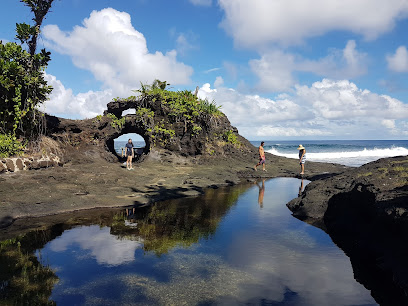
Piula Cave Pool
Experience the serene beauty of Piula Cave Pool, a hidden gem in Samoa offering crystal-clear waters, vibrant marine life, and lush tropical surroundings.
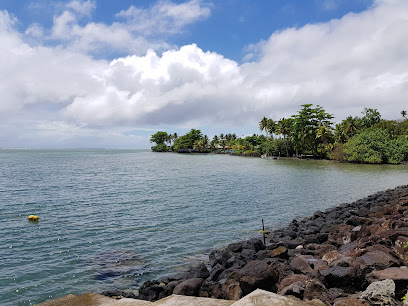
Samoa Cultural Village
Experience the vibrant culture and traditions of Samoa at the Samoa Cultural Village, where history comes alive through art, dance, and community.
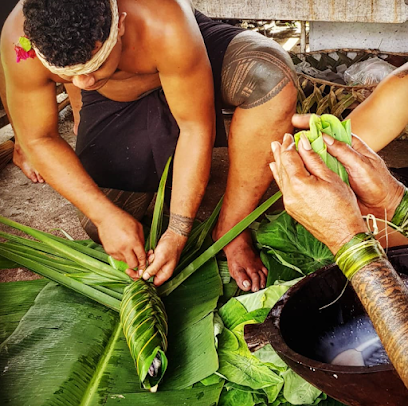
Palolo Deep Marine Reserve
Explore the vibrant underwater world at Palolo Deep Marine Reserve in Samoa, a must-visit for snorkeling and diving enthusiasts.
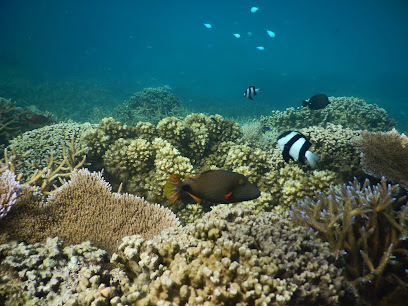
Giant Clam Sanctuary
Experience the breathtaking beauty of the Giant Clam Sanctuary in Savaia, where nature conservation meets stunning marine life.
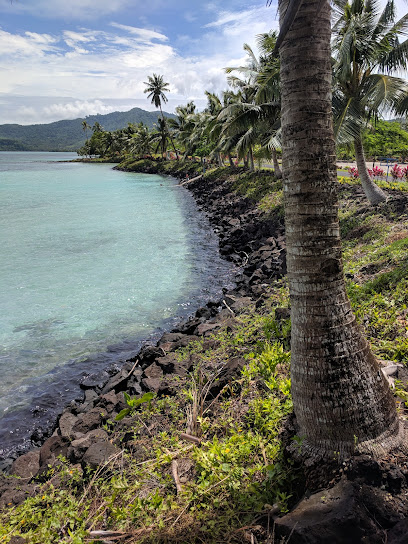
Robert Louis Stevenson Museum
Discover the rich literary heritage of Robert Louis Stevenson at this enchanting museum in Apia, surrounded by the beauty of Samoa.
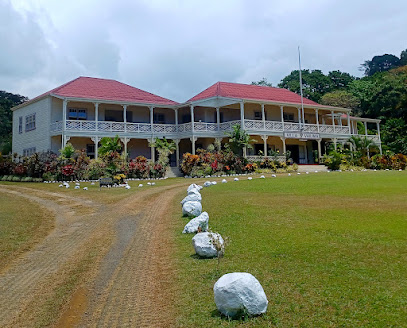
Papaseea Sliding Rocks
Discover the thrill of sliding down natural rock formations into crystal-clear pools at Papaseea Sliding Rocks, a must-visit attraction in Samoa.
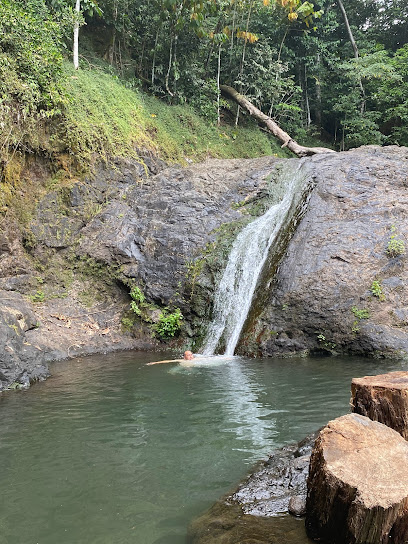
Immaculate Conception Cathedral
Explore the stunning Immaculate Conception Cathedral in Apia, a cultural landmark showcasing Samoan architectural beauty and spiritual heritage.
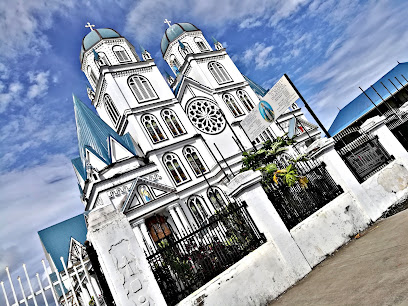
Papapapaitai Falls
Explore the stunning Papapapaitai Falls in Samoa, where nature’s beauty cascades down lush cliffs, offering breathtaking views and tranquility.
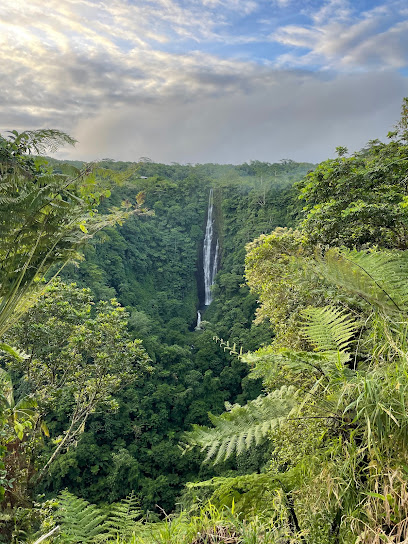
Togitogiga Waterfall
Discover the breathtaking Togitogiga Waterfall in Samoa, a serene natural oasis perfect for swimming and relaxation amidst lush tropical beauty.
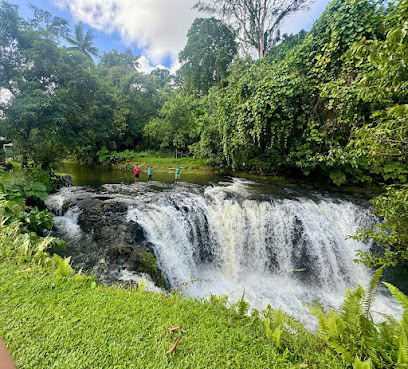
Tiapapata Art Centre
Explore the vibrant art scene of Samoa at Tiapapata Art Centre, a cultural gem in Apia showcasing local talent and unique handcrafted works.
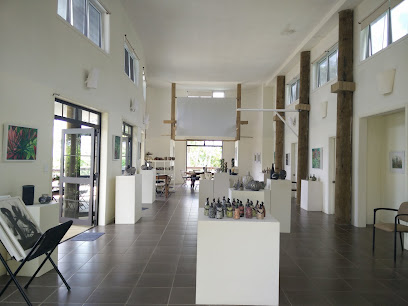
Baha'i House of Worship Samoa
Experience tranquility and spiritual peace at the stunning Baha'i House of Worship in Samoa, a must-visit destination for reflective travelers.
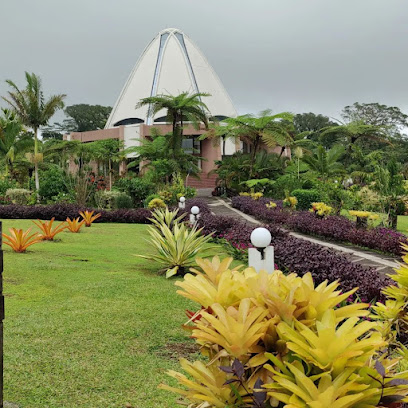
Museum of Samoa
Discover the rich heritage of Samoa at the Museum of Samoa, where history, culture, and art come together in a captivating experience.
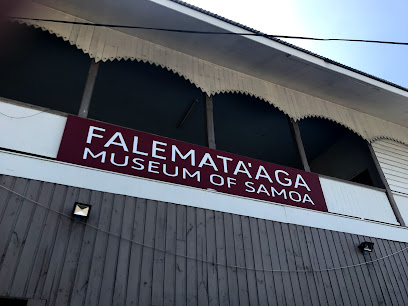
Robert Louis Stevenson Tomb
Explore the Robert Louis Stevenson Tomb in Apia, a historical landmark celebrating the life of the iconic author amidst stunning natural beauty.
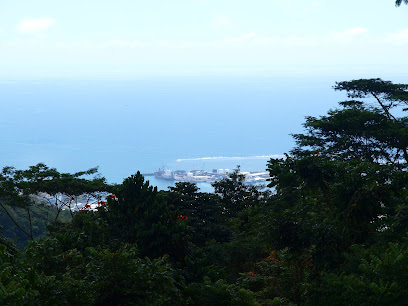
Urban Village Tattoos Samoa
Discover the artistry of Samoan tattoos at Urban Village Tattoos in Apia, where culture and craftsmanship meet to create unforgettable body art.
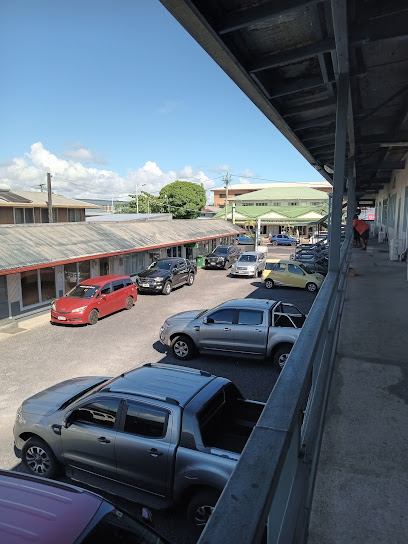
Unmissable attractions to see
Palolo Deep Marine Reserve
Explore the vibrant underwater world of Palolo Deep Marine Reserve in Apia, Samoa, a paradise for snorkelers and marine life enthusiasts.
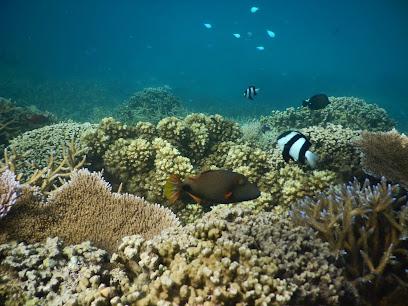
Giant Clam Sanctuary
Explore the vibrant marine life and stunning beauty of the Giant Clam Sanctuary in Savaia, a nature preserve that promises unforgettable underwater adventures.
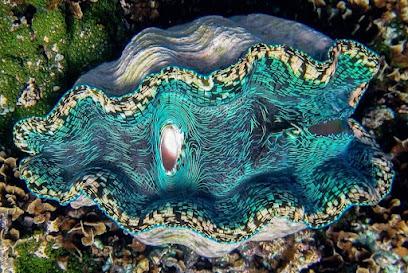
Essential places to dine
Paddles Restaurant
Experience authentic Samoan cuisine at Paddles Restaurant in Apia, where fresh seafood meets stunning ocean views.
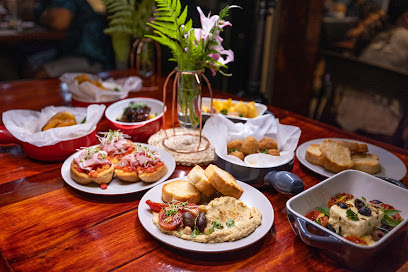
Giordano's Pizzeria // Samoa
Experience authentic Italian cuisine at Giordano's Pizzeria in Samoa—where every slice tells a story of flavor and tradition.
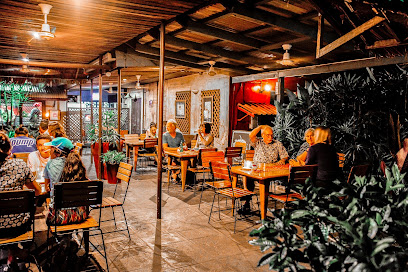
The Edge Marina, Samoa
Experience the vibrant atmosphere at The Edge Marina in Apia – your ultimate destination for food, drinks, and stunning ocean views in Samoa.
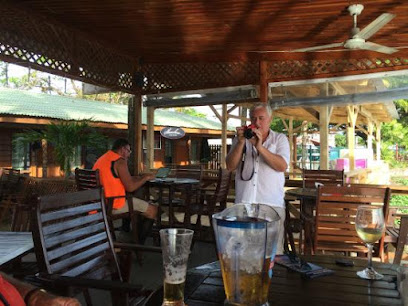
McDonald's
Discover fast-food delights at McDonald's in Apia – a perfect blend of familiar flavors and local charm.
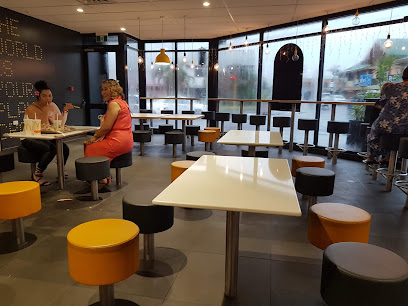
Scalini's Restaurant
Discover authentic Samoan cuisine at Scalini's Restaurant in Apia - where every meal tells a story.
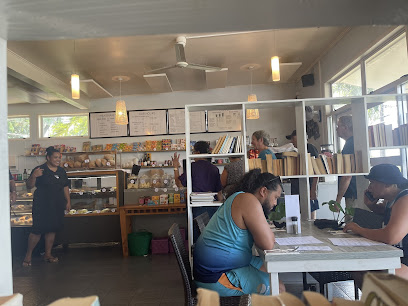
Sails Restaurant & Bar
Discover delightful dining at Sails Restaurant & Bar in Apia – where fresh flavors meet breathtaking ocean views.
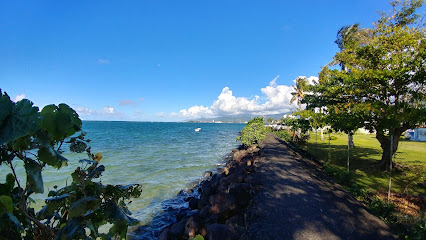
Pinati Restaurant
Experience authentic Samoan flavors at Pinati Restaurant in Apia – a culinary delight that captures the heart of Samoa's rich heritage.
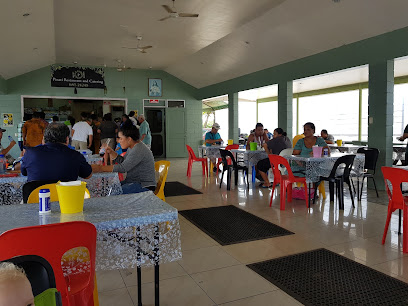
Amanaki Restaurant
Discover authentic Samoan flavors at Amanaki Restaurant in Apia – where every dish is crafted with love and tradition.
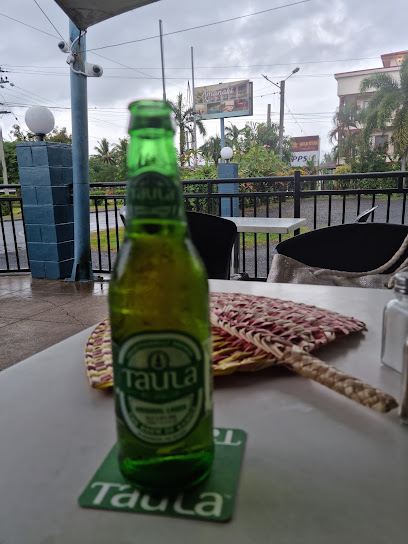
Bistro Tatau Restaurant
Experience authentic Samoan flavors at Bistro Tatau Restaurant in Apia – where culinary tradition meets modern flair.
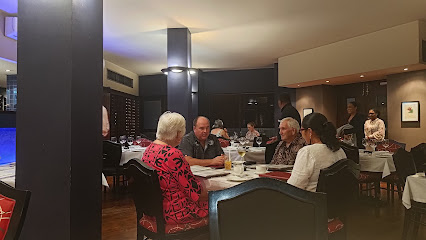
Island Grill - Steak & Seafood
Discover culinary excellence at Island Grill - Steak & Seafood in Apia, where local flavors meet international cuisine in an inviting atmosphere.
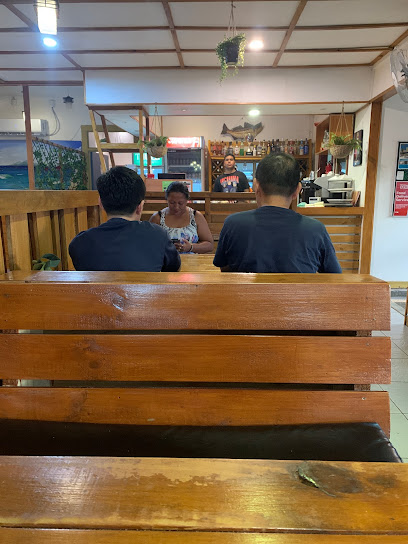
Roko's Restaurant
Discover authentic Samoan flavors at Roko's Restaurant in Apia - where local ingredients meet warm hospitality.
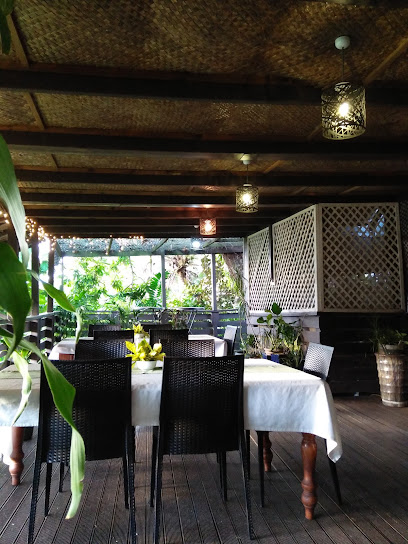
Taumeasina Hidden Gem Restaurant & Bar
Experience exquisite Samoan cuisine at Taumeasina Hidden Gem Restaurant & Bar, where every meal is a delightful journey through local flavors.
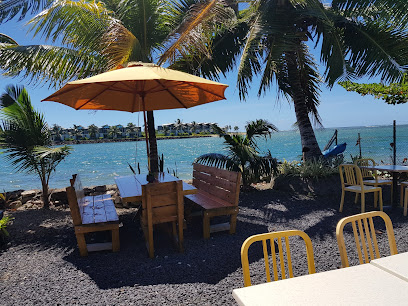
Tandoori Indian Restaurant
Discover the rich flavors of India at Tandoori Indian Restaurant in Apia - where culinary excellence meets Samoan charm.
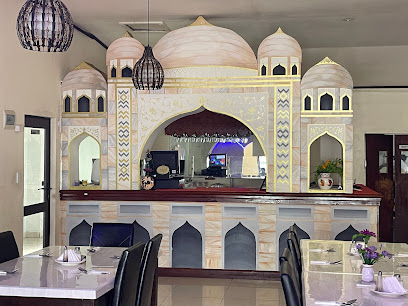
Bella's Kitchen
Discover the vibrant flavors of Samoa at Bella's Kitchen in Apia – home to delicious burgers and warm hospitality.
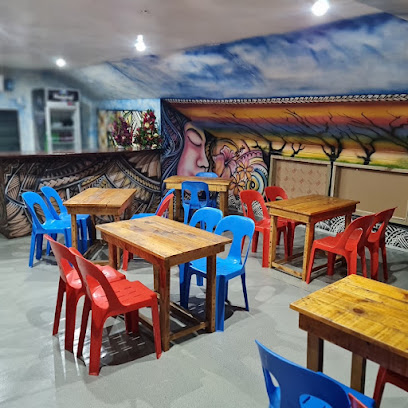
Sunrise Restaurant
Experience authentic Chinese flavors at Sunrise Restaurant in Apia – where every dish tells a story.
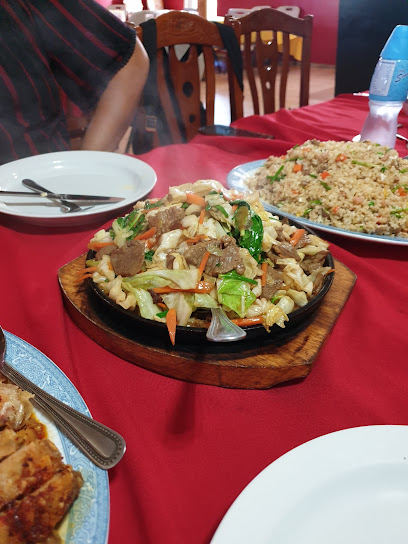
Markets, malls and hidden boutiques
Pacific Jewell Gift Shop & Garden Café
Explore the best of Samoa's culture at Pacific Jewell Gift Shop & Garden Café, where unique gifts meet delicious local cuisine in a serene garden setting.
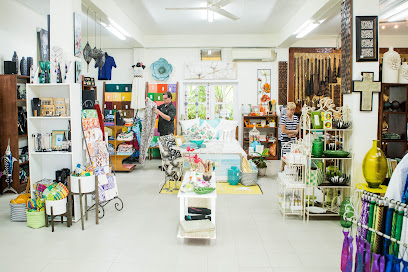
SSAB Megastore
Discover a shopping paradise at SSAB Megastore in Apia, where local charm meets international selection for a remarkable retail experience.
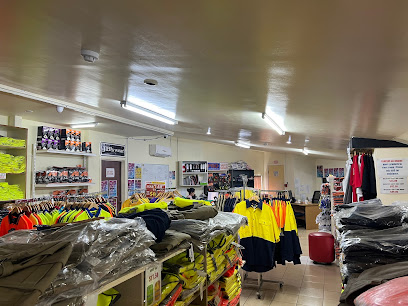
Janet's Samoa
Explore authentic Samoan crafts and cultural treasures at Janet's Samoa, a unique gift shop in Apia that celebrates local artisanship.
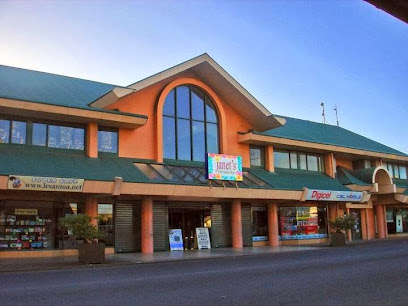
Mailelani Samoa Body Care
Experience the vibrant traditions of Samoan beauty at Mailelani Samoa Body Care, where locally crafted body care products await every traveler.
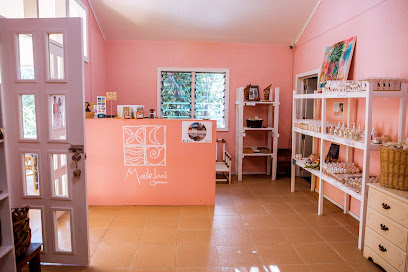
Linettacollections Samoa
Explore Linettacollections Samoa for unique home goods that celebrate local craftsmanship and the beauty of island living.

Le Well
Explore Le Well in Apia for unique home goods and local crafts that showcase the vibrant culture of Samoa.
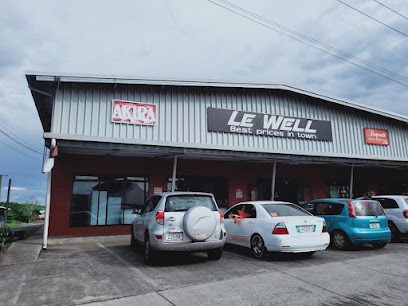
Plantation House
Explore vibrant fashion at Plantation House, a unique clothing store in Apia offering local artistry and stylish souvenirs.
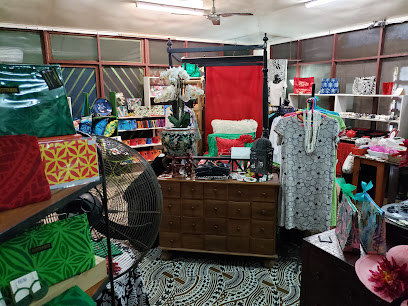
Push Play Samoa shop
Experience the ultimate gaming adventure at Push Play Samoa in Apia, where fun and creativity come together for all ages.

Lina's Shop
Explore the vibrant culture of Samoa at Lina's Shop in Apia, where unique handcrafted goods await every visitor.
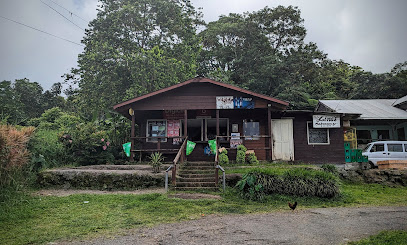
Le-Ata Samoa
Explore the heart of Samoan craftsmanship at Le-Ata Samoa, the ultimate gift shop for unique souvenirs and local treasures.
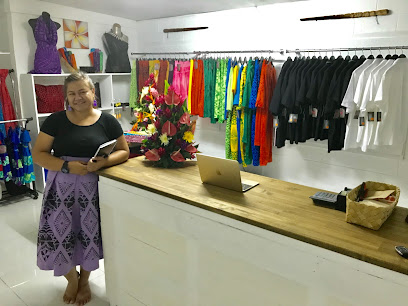
Janet's
Explore Janet's in Faleolo, Samoa: A cultural gift shop showcasing local arts, crafts, and the rich heritage of the Samoan people.
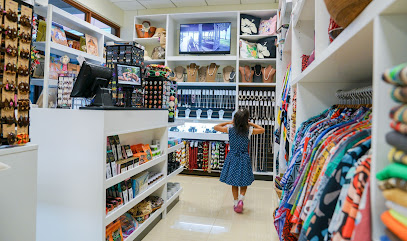
Ross Samoa
Explore Ross Samoa, a captivating second-hand store in Apia, where vintage treasures and unique linens await every curious traveler.
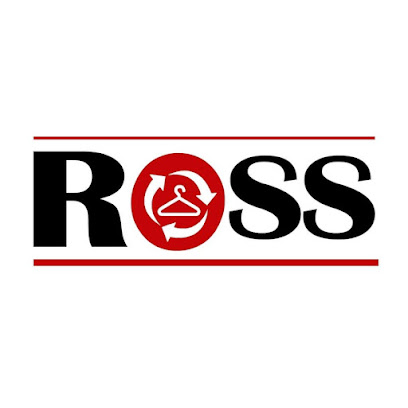
Boss Palace Samoa
Explore exquisite handmade jewelry at Boss Palace Samoa, where Samoan culture meets modern elegance in every piece.
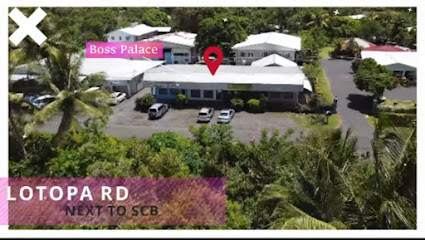
ILYS Clothing
Explore ILYS Clothing in Apia for unique styles that reflect the vibrant culture of Samoa, perfect for fashion lovers and souvenir hunters.

Evelyn Fidow Store
Explore the heart of Apia at Evelyn Fidow Store, where local crafts and authentic Samoan culture come together in a vibrant shopping experience.

Essential bars & hidden hideouts
The Edge Marina, Samoa
Discover the vibrant atmosphere of The Edge Marina, Samoa - a perfect blend of relaxation, local flavors, and breathtaking marina views.
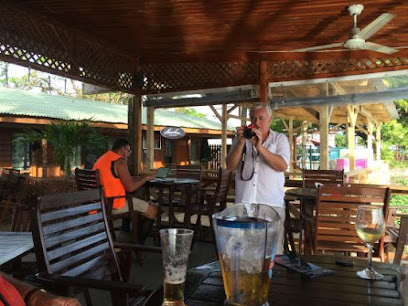
Sails Restaurant & Bar
Experience the flavors of Samoa at Sails Restaurant & Bar, a premier dining destination in Apia with breathtaking ocean views and exceptional cuisine.
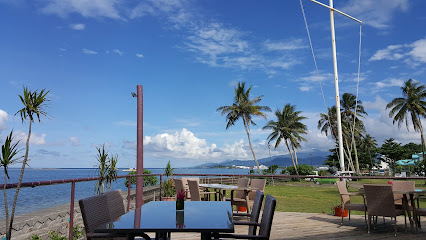
Taumeasina Restaurant & Bar
Experience the vibrant flavors of Samoa at Taumeasina Restaurant & Bar, where local cuisine meets breathtaking views in Apia.
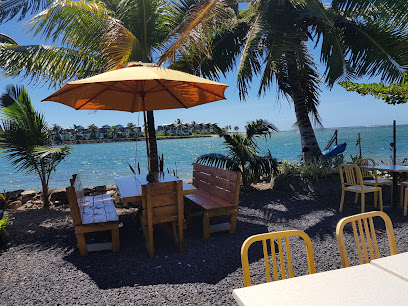
LuluLosa Beach Fales Bar & Grill
Discover the tropical paradise of LuluLosa Beach Fales Bar & Grill, where beachfront dining meets cozy accommodation in beautiful Samoa.
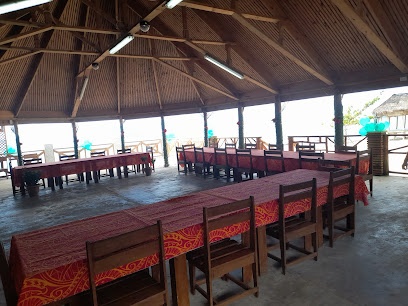
Cocktails On the Rocks
Experience the best cocktails and stunning coastal views at Cocktails On the Rocks, a vibrant bar in Apia, Samoa perfect for unwinding.
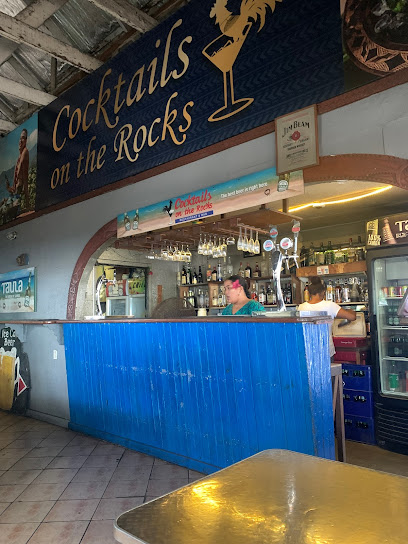
Anita's Beach Bar/Restaurant
Experience the vibrant atmosphere and breathtaking views at Anita's Beach Bar, the perfect destination for food, drinks, and relaxation in Lalomanu.
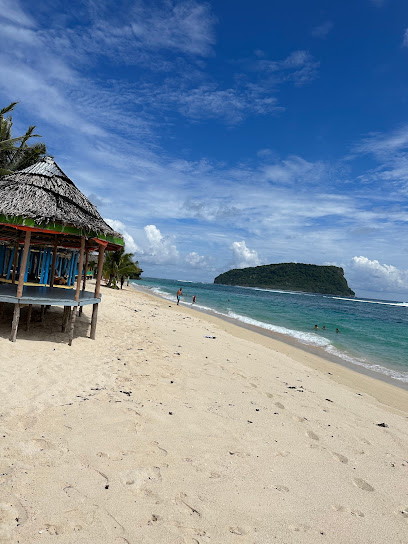
Apia Yacht Club Bar and Restaurant
Discover the perfect blend of stunning ocean views and delicious cuisine at Apia Yacht Club Bar and Restaurant in Mulinu'u, Samoa.
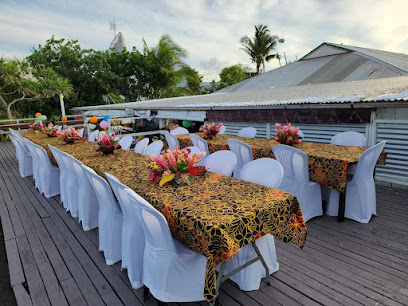
JP Bar
Discover the vibrant nightlife at JP Bar in Apia, where local flavors and lively entertainment create an unforgettable experience.
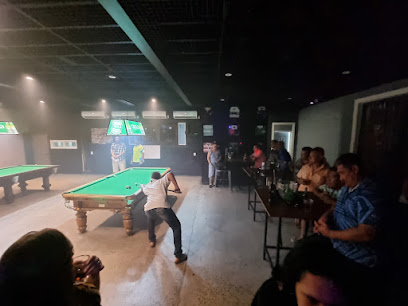
Y-Not Lounge Bar Samoa
Experience the vibrant nightlife and tropical drinks at Y-Not Lounge Bar in Apia, Samoa – a perfect blend of local culture and relaxation.

Beachcomber Bar And Restaurant
Discover the flavors of Samoa at Beachcomber Bar And Restaurant, a coastal paradise offering local cuisine and stunning ocean views.
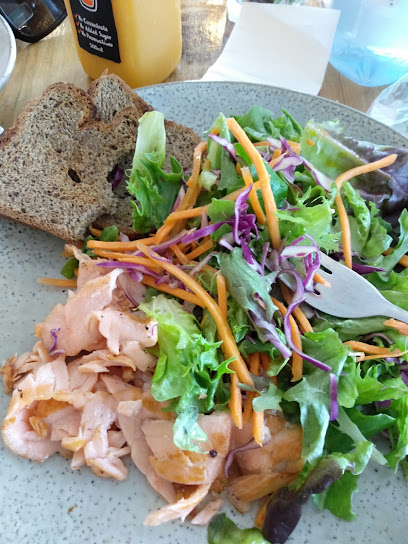
Solent Bar
Experience tranquility at Solent Bar in Mulifanua, where refreshing drinks and stunning ocean views create the perfect escape in Samoa.

The Pool Bar
Discover relaxation and vibrant flavors at The Pool Bar in Mulifanua, a tropical haven for tourists looking to unwind in paradise.

Tuxx Bar Samoa
Discover the vibrant nightlife of Apia at Tuxx Bar Samoa, where local flavors and refreshing cocktails await your arrival.

The Lobby Bar
Experience the vibrant ambiance of The Lobby Bar in Apia, Samoa, where relaxation meets exceptional service and delightful drinks.

Local Phrases about Upolu Island
-
- HelloTalofa
[Tah-loh-fah] - GoodbyeFa
[Fah] - YesIoe
[Ee-oh-eh] - NoLeai
[Leh-eye] - Please/You're welcomeFa'amalie
[Fah-ah-mah-lee-eh] - Thank youFa'afetai
[Fah-ah-feh-tah-ee] - Excuse me/SorryTulou
[Too-loh-oo] - How are you?O a mai oe?
[Oh-ah-mai-oh-eh] - Fine. And you?Lelei. O a oe?
[Leh-leh-ee. Oh-ah-oh-eh] - Do you speak English?Ou te fai le fa'ainglisi?
[Oh-teh-fye-leh-fah-ah-eeng-lee-see] - I don't understandE le mafai ona malamalama
[Eh-leh-mah-fye-oh-nah-mah-lah-mah-lah-mah]
- HelloTalofa
-
- I'd like to see the menu, pleaseOu te fia vaega atu i le fa'amanuia, fa'amalie
[Oh-teh-fee-ah-vah-eh-gah-ah-too-ee-leh-fah-ah-mah-noo-ee-ah-fah-ah-mah-lee-eh] - I don't eat meatE le auai i le kuka laukou
[Eh-leh-ah-oo-eye-ee-leh-koo-kah-lah-oo-koh] - Cheers!Manuia!
[Mah-noo-ee-ah] - I would like to pay, pleaseOu te fia totogi, fa'amalie
[Oh-teh-fee-ah-toh-toh-gee-fah-ah-mah-lee-eh]
- I'd like to see the menu, pleaseOu te fia vaega atu i le fa'amanuia, fa'amalie
-
- Help!Tulou!
[Too-loh-oo] - Go away!Alu i le loloto!
[Ah-loo-ee-leh-loh-loh-toh] - Call the Police!Fa'afeso'i i le Ofisa o le Fa'amasinoga!
[Fah-ah-feh-soh-ee-ee-leh-oh-fee-sah-oh-leh-fah-ah-ah-mah-see-noh-ngah] - Call a doctor!Fa'afeso'i i le loia!
[Fah-ah-feh-soh-ee-ee-leh-loh-ee-ah] - I'm lostUa ou malamalama
[Oo-ah-oh-mah-lah-mah-lah-mah] - I'm illUa ou lelei
[Oo-ah-oh-leh-leh-ee]
- Help!Tulou!
-
- I'd like to buy...Ou te fia fesoasoani...
[Oh-teh-fee-ah-feh-soh-ah-soh-ah-nee] - I'm just lookingOu te fia vaai
[Oh-teh-fee-ah-vah-eye] - How much is it?E fia fa'atasi ai?
[Ey-fee-ah-fah-ah-tah-see-eye-eye] - That's too expensiveO le tele lava
[Oh-leh-teh-leh-lah-vah] - Can you lower the price?Ou te fia alu i le totogi?
[Oh-teh-fee-ah-ah-loo-ee-leh-toh-toh-gee]
- I'd like to buy...Ou te fia fesoasoani...
-
- What time is it?O le a le taimi?
[Oh-leh-ah-leh-tah-ee-mee] - It's one o'clockO le tasi
[Oh-leh-tah-see] - Half past (10)I le itu i le sefulu
[Ee-leh-ee-too-ee-ee-leh-seh-foo-loo] - MorningTaeao
[Tah-eh-ah-oh] - AfternoonAfiafi
[Ah-fee-ah-fee] - EveningIliili
[Ee-lee-ee-lee] - YesterdayAnanafi
[Ah-nah-nah-fee] - TodayAso nei
[Ah-soh-neh-ee] - TomorrowAso ma le po
[Ah-soh-mah-leh-poh] - 1Tasi
[Tah-see] - 2Lua
[Loo-ah] - 3Tolu
[Toh-loo] - 4Fa
[Fah] - 5Lima
[Lee-mah] - 6Ono
[Oh-noh] - 7Fitu
[Fee-too] - 8Valu
[Vah-loo] - 9Iva
[Ee-vah] - 10Sefulu
[Seh-foo-loo]
- What time is it?O le a le taimi?
-
- Where's a/the...?O fea le...?
[Oh-feh-ah-leh] - What's the address?O le a le tuatusi?
[Oh-leh-ah-leh-too-ah-too-see] - Can you show me (on the map)?Ou te fia fa'ailoa mai ia te a'u (i le mapa)?
[Oh-teh-fee-ah-fah-ah-ee-loh-ah-mah-ee-ah-teh-ah-oo-ee-eye-leh-mah-pah] - When's the next (bus)?O le a le taimi o le a uma?
[Oh-leh-ah-leh-tah-ee-mee-oh-leh-ah-oo-mah] - A ticket (to ....)Tiketi (i ....)
[Tee-keh-tee-ee]
- Where's a/the...?O fea le...?
History of Upolu Island
-
Around 3,000 years ago, the Lapita people, known for their seafaring skills and pottery, arrived on Upolu Island. Their arrival marked the beginning of human settlement in Samoa. The Lapita culture laid the foundation for Polynesian culture, which continues to influence the Samoan way of life today.
-
Upolu Island became a significant part of the Tui Manuʻa Empire, an ancient Polynesian maritime confederation. This empire dominated the region, and its influence can still be seen in the traditional Samoan political and social systems. The Tui Manuʻa ruled over large areas of Samoa and other Polynesian islands, establishing Upolu as a central hub.
-
In the 18th century, European explorers, including the Dutchman Jacob Roggeveen and the Frenchman Louis-Antoine de Bougainville, arrived on Upolu Island. Their visits were among the first recorded European contacts with Samoa, opening the door to further interactions and eventual colonization efforts.
-
In the mid-19th century, Christian missionaries from the London Missionary Society arrived on Upolu Island. Their influence led to the widespread conversion of the Samoan people to Christianity. The island's culture and traditions were significantly shaped by this religious transformation, which remains a cornerstone of Samoan society.
-
During the late 19th century, Upolu Island was a central battleground in the Samoan Civil Wars. These conflicts were fueled by rivalries among local chiefs and the intervention of colonial powers like Germany, Britain, and the United States. The wars eventually led to the partitioning of the Samoan Islands among these colonial powers.
-
From 1900 to 1914, Upolu Island was part of German Samoa. The German administration focused on developing the island's infrastructure and economy, particularly through the establishment of copra and cocoa plantations. This period left a lasting impact on the island's economic and social landscape.
-
Following World War I, Upolu Island came under New Zealand administration as part of a League of Nations mandate. This period saw significant social and political changes, including efforts to modernize the island and improve local governance. The Mau movement for Samoan independence also gained momentum during this time.
-
The Mau movement, which began in the early 20th century, was a significant non-violent resistance movement advocating for Samoan independence from colonial rule. Key events, such as the Black Saturday incident in 1929, were pivotal in the struggle. Samoa eventually gained independence in 1962, making it the first Pacific island nation to do so.
-
In the early 1990s, Upolu Island was severely impacted by two major cyclones, Cyclone Ofa in 1990 and Cyclone Val in 1991. These natural disasters caused extensive damage to the island's infrastructure and economy but also demonstrated the resilience and solidarity of the Samoan people in rebuilding their communities.
-
Today, Upolu Island is known for its vibrant cultural festivals, such as Teuila Festival and the annual Samoa Independence Celebration. These events showcase traditional Samoan dance, music, and crafts, preserving and promoting the island's rich cultural heritage for both locals and visitors.
Upolu Island Essentials
-
Upolu Island is accessible via Faleolo International Airport (APW), located about 40 kilometers west of Apia, the island's capital. Major airlines, including Fiji Airways, Air New Zealand, and Virgin Australia, operate flights to and from this airport. From the airport, you can take a taxi, shuttle service, or rent a car to reach your destination on the island.
-
Public transportation on Upolu Island includes buses and taxis. Buses are an affordable way to get around, but schedules can be irregular. Taxis are widely available and can be hired for short trips or for the entire day. If you prefer driving, car rentals are available at the airport and in Apia. Be aware that driving is on the left side of the road.
-
The official currency of Samoa is the Samoan Tala (WST). Credit cards are accepted in major hotels, restaurants, and shops in Apia, but it is advisable to carry cash, especially when traveling to rural areas. ATMs are available in Apia and other major towns, but may be limited in smaller villages.
-
Upolu Island is generally safe for tourists. However, petty theft can occur, so keep your belongings secure and be vigilant in crowded areas. Avoid walking alone at night in unfamiliar places. There are no specific high-crime areas targeting tourists, but it’s always best to stay aware of your surroundings.
-
In case of emergency, dial 911 for immediate assistance. The main hospital on Upolu Island is the Tupua Tamasese Meaole Hospital in Apia, which provides comprehensive medical services. For minor health issues, pharmacies are available in Apia and other towns. It's recommended to have travel insurance that covers medical emergencies.
-
Fashion: Do dress modestly, especially when visiting villages and religious sites. Avoid revealing clothing. Religion: Do respect local customs and traditions. Always dress modestly and remove your shoes when entering a church. Public Transport: Do be respectful and courteous to drivers and other passengers. Don't eat or drink on public transport. Greetings: Do greet people with a smile and a friendly 'Talofa' (hello). A handshake is common. Eating & Drinking: Do try local dishes and accept food offerings graciously. Don't refuse hospitality, as it is considered impolite.
-
To experience Upolu Island like a local, visit the local markets such as the Fugalei Market in Apia, where you can buy fresh produce and traditional Samoan crafts. Engage with locals, who are often friendly and willing to share insights about their culture. Don't miss out on visiting iconic sites like the To Sua Ocean Trench and the Robert Louis Stevenson Museum. For a unique experience, attend a fiafia night to enjoy traditional Samoan dance and music.
Trending Landmarks in Upolu Island
-
To-Sua Ocean Trench
-
Piula Cave Pool
-
Samoa Cultural Village
-
Palolo Deep Marine Reserve
-
Giant Clam Sanctuary
-
Robert Louis Stevenson Museum
-
Papaseea Sliding Rocks
-
Immaculate Conception Cathedral
-
Papapapaitai Falls
-
Togitogiga Waterfall
-
Tiapapata Art Centre
-
Baha'i House of Worship Samoa
-
Museum of Samoa
-
Robert Louis Stevenson Tomb
-
Urban Village Tattoos Samoa
Nearby Cities to Upolu Island
-
Things To Do in Mulifanua
-
Things To Do in Lalomanu
-
Things To Do in Salelologa
-
Things To Do in Savai'i
-
Things To Do in Fagamalo
-
Things To Do in Manase
-
Things To Do in Asau
-
Things To Do in Leone
-
Things To Do in Tafuna
-
Things To Do in Pago Pago
-
Things To Do in Fagatogo
-
Things To Do in Aua
-
Things To Do in Falealupo
-
Things To Do in Ha'ano
-
Things To Do in Pangai












